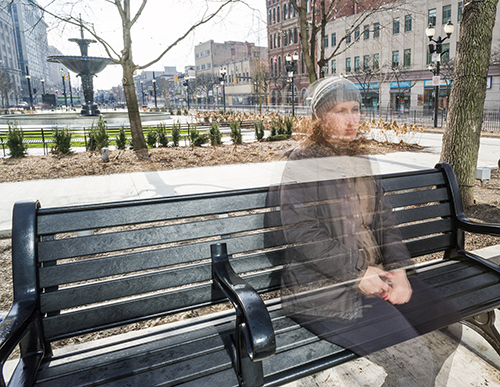
What happens if you are the only one to realize you have hearing loss? It's a common scenario among elderly people. They fight to stay involved in conversations but the people around them assume there are other reasons they seem distracted. Older folks can suffer from a number of issues that make them seem distant. It's possible hearing loss is not the first conclusion they draw. Hearing loss is an invisible disability, too. In other words, there is nothing to point that hurts. You can't show someone the problem. It's hard to understand how hearing loss affects your life unless you experience it for yourself. So, what should a person who thinks they have hearing loss do to make themselves heard?
Get Others Involved
Put your friends and family to working solving your hearing mystery, explains the National Institute on Deafness and Other Hearing Disorders. Even if you think you have hearing loss, it might be difficult to be sure that's what's happening without some feedback from the people in your life. Ask them straight out if they think it's a problem. Pose questions like:
- Have they noticed you asking them to repeat themselves often?
- Are you turning the TV up too loud?
- Are you misunderstanding what they tell you sometimes?
- It might be the idea of hearing loss just hasn't occurred to them. Once you bring it up in conversation, they might start picking up on the clues.
Ask the Doctor for a Hearing Test
A physician that sees you one a year of a wellness check may not pick up on your hearing problems. Many conditions that lead to hearing loss don't present with physical symptoms that a physician will see when examining your ears, either. If you suspect hearing is causing you a problem, then it's time to speak up. The doctor can ask questions to clarify your concern and even do same baseline tests in the office prior to sending you for a more comprehensive hearing test with an audiologist. None of that will happen, though, if you fail to make the doctor aware of your hearing loss.
Make Changes on Your Own
Once you have a real diagnosis and a professional hearing test, you have everything you need to improve your hearing health. For most people, hearing loss is a treatable condition. With the right tools at your disposal, your hearing loss will have less of an impact, so you struggle less. The audiologist and your doctor can look at your test results and help you make smart decisions designed to improve your life like getting hearing aids and other assistive listening devices. Go slow picking out hearing aids to give yourself a chance to explore all the different features available and come up with the right mix for your needs. A certified hearing aid retailer will sit with you and go over the benefits of each brand and model. You will learn how different features work, too. Look for a dealer that offers a trial period, as well. This gives you the chance to test drive each feature, so you know if you need it or not.
Don't Go It Alone
What they don't know can hurt you, so talk to the people in your life. Make them understand your concerns about your hearing loss and make them part of the solution. Take a friend or family member with you to the doctor and when you go for your hearing test. Let them help as you listen to the diagnosis and the interpretation of the range of your hearing loss. Make them part of the decision-making process as you pick out the different hearing aids you want to try. Just because you have hearing loss, doesn't mean you have to live with it alone. When you incorporate your family into the process, you make them apart of that world, too. You are no longer the only one who understands what hearing loss is like and how it affects your life. By including them, you help them see what they can't see otherwise. Hearing loss is a life changer but so much harder when you struggle with it alone, so don't. You are taking a courageous step by dealing with your loss, now; help your friends and family understand it with you.